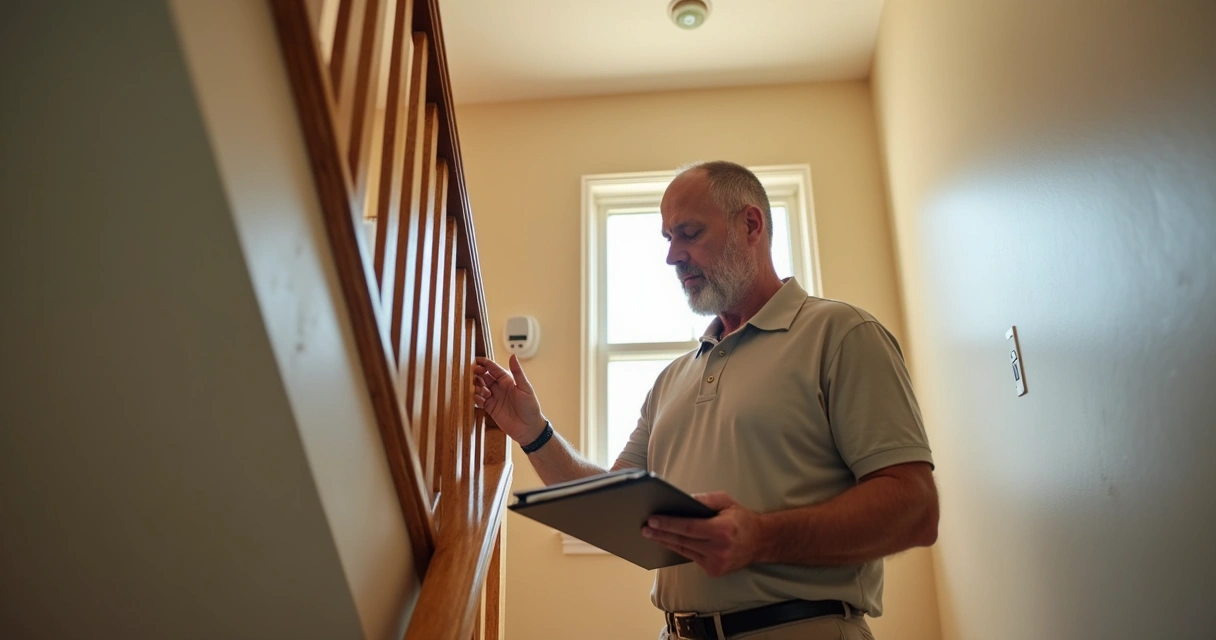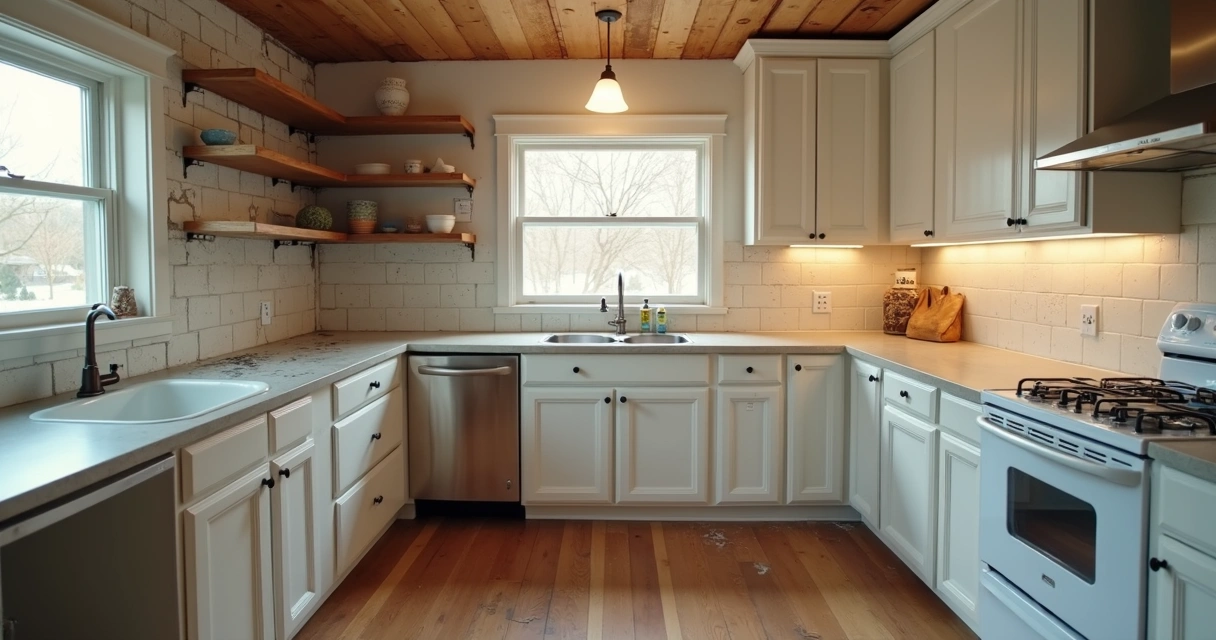There is a moment when the door to your first home feels a little closer. Maybe it is after a long week of open houses. Maybe it is when you realize your savings and your credit report are not perfect, yet still workable. That is where an FHA-insured mortgage often fits. It can be gentle where other paths feel strict, while still asking for steady proof that you can repay. I think that balance is what many buyers need.
At Heart Mortgage, we see this every month. People who were told no by a traditional bank find a clear path forward. They meet with a guide, get honest answers, then take the next step. You do not have to be flawless to be financed. You just need a plan you can hold.
Small savings can still open doors.
This guide explains what an FHA-backed loan is, how it works, who qualifies, and the steps to apply. It also walks through costs such as mortgage insurance, loan limits, interest rate factors, and the special renovation option called 203(k). I will add a few practical tips that often improve approval odds. If you like straight talk, you will feel at home here.
What an FHA-backed mortgage is
An FHA loan is a mortgage insured by the Federal Housing Administration. It is not money from the government. Private lenders issue the loan, and the FHA provides insurance to the lender. That insurance reduces the lender’s risk, which is why buyers with lower credit or smaller savings can get approved more often. The FHA program is explained in clear terms in HUD guidance on FHA loans and in the CFPB explanation of FHA loans. Both confirm the core purpose. Make homeownership more reachable when barriers like credit and down payment feel heavy.
Because the lender is protected by federal insurance, underwriting can be a bit more forgiving on past mistakes, as long as your current picture shows stability. A past collection that has since been settled may not block you. A thinner credit file may still pass. Not always. But quite often.
Who an FHA-insured mortgage helps
- First-time buyers who have not built big savings yet.
- Borrowers with modest credit scores who pay bills on time today.
- Households with higher debt from student loans, yet steady income.
- Buyers who need a gift from family for the down payment.
- People who want to purchase a 1 to 4 unit home to live in one unit and rent the others.
There is good context in research from the Urban Institute showing how often this program supports first-time buyers and folks with lower scores. It is not just theory. It is part of the housing story in many towns.
How the down payment works
Here is the simple version. If your credit score is 580 or higher, the minimum down payment is usually 3.5 percent of the purchase price. If your score is between 500 and 579, the minimum jumps to 10 percent. That is the FHA rule set lenders follow, also described by the Consumer Financial Protection Bureau and confirmed by HUD.
Gift funds can cover some or even all of that down payment if they come from an approved source, like a close family member. Sellers can help too, with concessions up to 6 percent of the price to cover closing costs and prepaid items. This can make the cash needed to close feel much lighter.
Yes, you can use a gift.
Mortgage insurance: what it is and why it exists
FHA financing requires two types of mortgage insurance. There is an upfront premium, often 1.75 percent of the base loan amount, and an annual premium, charged monthly. The upfront piece is commonly rolled into the loan so you do not pay it out of pocket at closing. The annual cost is set by program rules and depends on down payment size, loan term, and loan amount. Exact rates update from time to time, so check HUD for the current schedule. The structure is designed to protect the insurance fund so lenders can keep saying yes to more buyers with smaller down payments.
Will you pay mortgage insurance for the life of the loan? Often yes if the down payment is under 10 percent. If you put 10 percent down or more, the annual premium may drop off after 11 years. That detail matters when planning how long you will keep the mortgage.
Credit score basics and approval odds
There is no single magic score that guarantees approval. Yet the program allows for a broader range than many other options. Scores at 580 or above can qualify with a 3.5 percent down payment. Scores between 500 and 579 may work with a 10 percent down payment. Lenders still review the full file. Recent late payments, a new collection, or gaps in employment can slow things down. Not always fatal, but they matter.
To help your case:
- Make on-time payments for at least 12 months before you apply.
- Pay down revolving balances so your utilization is lower.
- Dispute errors with the bureaus early, not during underwriting.
- Avoid opening new credit lines right before or during the process.
The Federal Reserve consumer guide on mortgages explains in plain language how credit and debt interact with approval. It is worth a careful read. The tone is steady and clear.
Debt-to-income ratio and income stability
Your debt-to-income ratio, or DTI, compares monthly debt payments to your gross monthly income. Many FHA approvals land at or below 43 percent, but higher ratios can still pass with compensating factors such as strong cash reserves, a larger down payment, or a history of paying rent near the proposed mortgage amount. Some files are approved around 50 percent DTI when the overall profile makes sense.
Employment history matters. Two years of history is preferred, though it can include school or training in the field. If you changed jobs but stayed in the same line of work, that can be fine. Large gaps can require a letter of explanation. Keep it simple and honest.
Loan limits by county
FHA sets limits by county and by the number of units in the home. One to four units have different caps. In 2024, the baseline limit for a one-unit home in lower-cost areas is in the high four-hundreds, and in high-cost areas it rises above one million for a single-unit property. The precise number for your county is listed on HUD. These limits change year by year. It is smart to check them early, then pick your price range with confidence.
How rates usually compare
Because the loan is insured, the note rate is often competitive, sometimes a bit lower than a similar conventional rate for a buyer with the same credit score. The total cost can still be similar after you add the FHA mortgage insurance, so you want to compare the monthly payment and the long view. If you plan to keep the home for a few years then refinance, one path may shine. If you plan to stay long-term, a different path may win.
Heart Mortgage often runs both scenarios side by side. We also walk through conventional mortgage program details when they fit better. Honest advice means you see the numbers without pressure.
How an FHA appraisal works
An FHA appraisal checks value and also looks for basic property condition and safety. Peeling paint on an older home with possible lead content, missing handrails, or a non-functioning heater can trigger repairs before closing. This is not a home inspection. It is a value and safety review with specific standards. Many homes pass without issue. Some need easy fixes like GFCI outlets or a railing added to a short set of steps.

The 203(k) renovation option
Some homes need work. Not cosmetic paint, but real updates. The 203(k) program lets you finance purchase and renovation in one loan. There are two types:
- Limited 203(k) for smaller projects, often up to $35,000, with no major structural changes.
- Standard 203(k) for bigger repairs, structural work, or when a HUD consultant is involved to guide draws and inspections.
With this route, you submit contractor bids during underwriting. After closing, funds are released in stages as work is completed. It can feel complex the first time. A steady lender team makes it smooth. Heart Mortgage handles many of these, and we treat the paperwork like a roadmap, not a maze.

FHA vs. conventional mortgages
There is no one-size choice. Some quick contrasts help:
- Down payment: FHA starts at 3.5 percent for many buyers. Conventional can go as low as 3 percent for some, yet often needs stronger credit to secure that rate and terms.
- Credit profile: FHA tends to be friendlier to lower scores and limited credit history. Conventional can reward high scores with lower overall costs.
- Mortgage insurance: FHA has upfront and annual mortgage insurance. Conventional has private mortgage insurance if you put less than 20 percent down, which can be canceled once you reach certain equity levels.
- Property condition: FHA appraisals highlight basic safety issues. Conventional appraisals focus more on value.
- Who it helps: FHA is well-suited for first-time buyers and anyone recovering from past credit events. Conventional is often a fit for those with stronger credit and larger down payments.
For a side-by-side overview of other options, Heart Mortgage keeps a simple list on our loan programs page. We do not want you guessing. Numbers beat guesses every time.
Fees and closing costs to expect
Every loan has closing costs. With an FHA-insured mortgage, plan for the upfront mortgage insurance premium, standard lender fees, title costs, appraisal, and prepaids like property taxes and homeowners insurance. If the seller offers a credit, it can cover many of these items. So can a lender credit in exchange for a slightly higher rate. Ask for a detailed loan estimate early. Then ask again after you pick a property so the numbers are exact.
How to apply step by step
- Start with a pre-approval. Share income, assets, and credit for review. A soft credit pull may be enough at first, with a full credit report before you shop seriously.
- Collect documents. Pay stubs for 30 days, W-2s for 2 years, federal tax returns if self-employed, two months of bank statements, ID, and your landlord’s contact or canceled checks for rent verification.
- Set a budget. Look at payment comfort, not just approval maximum. Include taxes, insurance, and mortgage insurance. The monthly should feel calm, not tight.
- Shop with your agent. When you find a home, your lender updates the pre-approval letter to match the offer price.
- Go under contract. You send the signed purchase agreement to your lender and pay for the appraisal.
- Underwriting review. The underwriter checks income, credit, assets, and the property. You may get a short list of conditions. Send them fast.
- Clear to close. Review the closing disclosure. Wire the funds for down payment and closing costs. Bring ID to the signing.

Documents you will likely need
- Last two pay stubs and last two years of W-2s.
- Last two months of bank statements, all pages.
- Government ID and Social Security number.
- Two years of federal tax returns if self-employed, plus year-to-date profit and loss.
- Rental history for 12 months, canceled checks or ledger if possible.
- Gift letter if someone is helping with funds, with paper trail.
- Letters of explanation for any credit events or gaps in work.
Tips to improve approval chances
- Pay down small credit cards first. Reducing utilization can lift scores faster than you expect.
- Build a tiny reserve. Two or three months of mortgage payments in the bank looks strong to underwriters.
- Keep job moves simple. If you must change jobs, staying in the same field helps.
- Season your funds. Keep the down payment in your account for 60 days if you can. Large new deposits need explaining.
- Avoid big purchases. No new car or furniture until after closing. It can shift your DTI at the worst time.

Common myths and quick truths
- Myth: FHA loans are only for first-time buyers. Truth: Anyone who qualifies can use them, as long as the property will be owner-occupied.
- Myth: You need perfect credit. Truth: You do not. The program was built for real people with real credit histories.
- Myth: Sellers will not accept FHA offers. Truth: Many do. A clean, well-presented file and a strong agent make the difference.
- Myth: You cannot refinance later. Truth: You can. Streamline refinances exist for FHA to FHA, with less paperwork.
How long it takes
From contract to closing, many FHA loans finish in 30 to 45 days. If a 203(k) is involved, add time for contractor bids and review. If repairs are needed from the appraisal, schedule them fast. When everyone pulls together, timelines shrink. When someone stalls, they stretch. It is human.
Who checks the rules
Program standards are set by HUD. Lenders follow them, and each lender may add internal guidelines, often called overlays. The broader policy context, including how FHA helps households with low credit scores, has been discussed in analysis from the Brookings Institution. If you want to dig into borrower rights and general mortgage education, the Federal Reserve consumer guide on mortgages is very readable.
What happens after closing
You move in. You make your payments on time. If rates drop or your credit improves, you can compare a refinance. Some keep their FHA mortgage for a long time. Others switch to a conventional loan once they have enough equity and can drop mortgage insurance. There is no single right move for everyone.
Heart Mortgage stays available after closing. We are a touch old-fashioned about that. If you have a question in month six, we want you to call or message. The door is still open.
Real-world story, short and honest
A buyer came to us with a 601 credit score and decent income. She had saved 5 percent. A student loan deferred for 12 months, a car payment, and a few old late payments from a rough year. We worked on small changes first. Paid down two cards. Wrote letters of explanation. Verified rent. The approval came back with a request for one more pay stub. That was it. She got the keys. Not fancy. Just steady steps.

Where to learn more with plain language
If you like official sources, HUD guidance on FHA loans and the CFPB explanation of FHA loans are both clear and current. If you prefer practical articles and buyer checklists, Heart Mortgage keeps a growing library of homebuyer articles. If you want a bird’s-eye view of options by loan type, you can skim our loan programs page. For a broader look at how mortgage types fit different buyers, the complete guide to mortgage loans in the USA is a friendly place to start. And if you need help with rebuilding scores, these credit tips are made for real life, not perfect lives.
Final thoughts before you apply
FHA-backed mortgages work best when you want a fair shot with less than perfect credit or lower savings. They ask you to be steady and clear. They give you structure in return. There are fees, yes. There are rules, yes. Yet the tradeoff often makes sense. You get approved. You move in. You start building home equity month by month.
At Heart Mortgage, our team, guided by experience from leaders like Lee Dama, treats this like a partnership. We listen first. We explain your options, including conventional if it looks better. Then we help you move forward with confidence.

Conclusion
If you are starting out, rebuilding, or just a bit unsure, an FHA-insured mortgage can turn a hard no into a calm yes. The rules are clear. The documents are known. The path is there. You bring honest numbers and steady habits. We bring guidance and care. That is the deal.
Ready to see where you stand today, not someday? Reach out to Heart Mortgage for straight answers and a simple plan. We will help you compare options, prepare your file, and walk you to the closing table with less stress.
Frequently Asked Questions
What is an FHA loan?
It is a mortgage insured by the Federal Housing Administration. A private lender makes the loan, and FHA insurance protects the lender if the borrower defaults. That insurance lowers lender risk, which helps buyers who have limited savings or lower credit scores qualify. You can read details in HUD guidance and the CFPB’s overview.
Who qualifies for an FHA mortgage?
Buyers who plan to live in the home, have verifiable income, and meet credit and debt-to-income guidelines may qualify. Many approvals happen with scores at 580 or above and a 3.5 percent down payment. Scores from 500 to 579 may need 10 percent down. Lenders also review your employment history, payment history, and property condition.
How much down payment is needed?
Most buyers with a 580 score or higher can put down 3.5 percent. If your score is between 500 and 579, the minimum is usually 10 percent. Gift funds from approved sources are allowed. Sellers can contribute up to 6 percent of the price toward closing costs, which lowers your cash to close.
Can I get an FHA loan with bad credit?
It is possible. The program accepts scores down to 500, but below 580 you will likely need a 10 percent down payment and a file that shows current stability. On-time payments for the past 12 months, lower credit card balances, and a steady job can all help. Each case is reviewed on its own merits, so do not count yourself out too early.
Is it worth it to get an FHA loan?
For many first-time buyers and anyone with limited savings or credit history, yes. The tradeoff is paying mortgage insurance in exchange for a lower down payment and broader approval rules. If you expect to refinance or sell within a few years, or if you plan to improve your credit, an FHA loan can be a smart stepping stone toward long-term homeownership.





